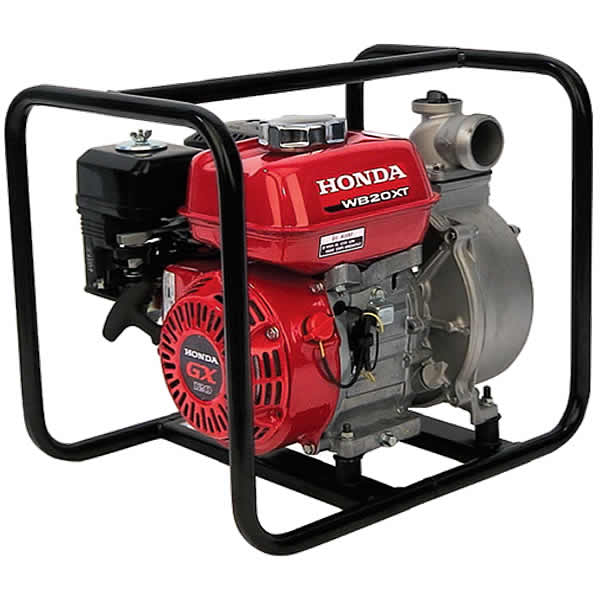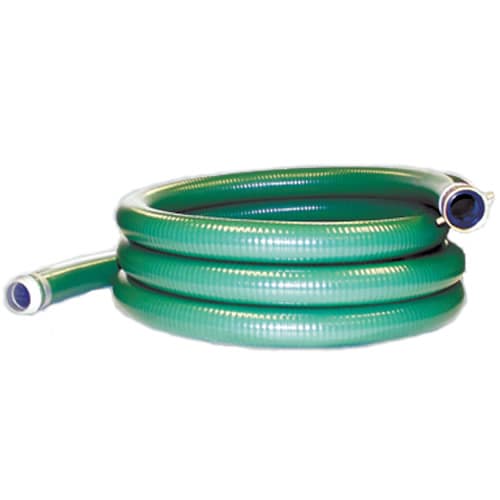
Dewatering Pump Buyer's Guide
Basements, yards, and construction sites can all flood, but with the help of a dewatering pump, you can move unwanted water to anywhere you want it.
Dewatering pumps are one of the most versatile types of water pumps because they can be used in such a large variety of applications.
In this article, you'll learn about the common types and uses of dewatering pumps, as well as the important specs you should compare when shopping for one.
Common Dewatering Pump Uses
 There are so many uses for dewatering pumps, it would be impossible to list them all. However, you can use dewatering pumps for construction purposes, for greywater flood-removal in basements or yards, and even agricultural applications like removing and transferring water from flooded fields or retention ponds.
There are so many uses for dewatering pumps, it would be impossible to list them all. However, you can use dewatering pumps for construction purposes, for greywater flood-removal in basements or yards, and even agricultural applications like removing and transferring water from flooded fields or retention ponds.
Dewatering pump systems are hard-working, general-purpose water pumps, so you'll find that people use them for a wide variety of applications. Some people use dewatering pumps to transfer water from a nearby source to irrigate their yard or garden. Others might use a dewatering pump to drain a pool.
Fire departments may use a dewatering pump in homes or apartment buildings to drain them of flooding and small debris, or even to fight wildfires near bodies of water. If you aren't pumping trash, large solids, wastewater, or trying to drain a whole lake, a high-pressure dewatering pump will likely be just what you're looking for.
Important Dewatering Pump Specifications
Like anything, researching before you buy is important to make sure you get exactly what you need. Below are some important water pump specifications to consider before buying a dewatering pump.
Why Inlet Size Matters
 Dewatering pumps have an inlet size ranging in size from 1-inch to 4-inches or larger. No matter the size, they all work the same way. It sucks in water through an inlet valve and ejects it from a discharge valve. A 4-inch dewatering pump can potentially finish a job much faster than a 1-inch pump.
Dewatering pumps have an inlet size ranging in size from 1-inch to 4-inches or larger. No matter the size, they all work the same way. It sucks in water through an inlet valve and ejects it from a discharge valve. A 4-inch dewatering pump can potentially finish a job much faster than a 1-inch pump.
If you need to empty a pool, for example, any size pump will get the job done. The difference in size just means the bigger pumps can get the job done more quickly.
Lastly, remember that whatever size inlet your pump has, you must use that size inlet or suction hose. You should NEVER reduce the diameter of the inlet/suction hose.
Dewatering Pump Low-Oil Shutoff Feature

All gas-powered engines need lubrication to run properly. This is done with engine oil, which also prevents the engine from overheating. If you run an engine without oil you can ruin it quickly.
A dewatering pump with a low-oil shutoff feature will automatically stop the engine from running when it senses a drop in oil pressure, preventing immediate damage.
This is a great feature you shouldn't go without.
Dewatering Pump Roll-Cages
Depending on where you'll be using a dewatering pump, you may want to consider a protective roll cage for the pump. A roll-cage helps to protect the pump in case it falls or something drops on it.
An added benefit of roll cages is that power equipment like cranes can lift the water pump on a construction site using the cage, which is an effective theft-proofing technique when storing equipment on-site overnight.
Another feature to look for is anti-vibration dampening. These are essentially just rubber mounts between the pump and the protective cage, keeping it in place and so it doesn't rattle and make more noise than necessary while in use.
![]() NEXT: Top-Rated & Best-Selling Dewatering Pumps
NEXT: Top-Rated & Best-Selling Dewatering Pumps





